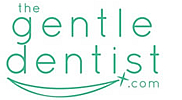The effects of cancer treatment on the mouth can be quite severe!
Most people realize the side effects of radiation and chemotherapy which are hair loss and nausea, but 1 out of 3 people develop problems with the mouth during and even after treatment. These complications such as dry mouth or life threatening infections may interfere with cancer treatment or diminish the quality of living and eating. It is therefore important to have a qualified dentist as part of the oncology team who can manage and prep the patient’s mouth in anticipation of these complications. This preoperative care for the cancer treatment is a vital part in a comprehensive approach to overall patient comfort and satisfaction.
Cancer treatment kills fast growing cells and saliva producing cells are one of the fast growing types. As a result, cancer patients can have extremely dry mouths eliminating the lubrication, re-mineralization, and healing enzyme properties of saliva.
Dental cavities, infection of the soft tissues, periodontal disease and other dental diseases are exacerbated and made worse when saliva is either reduced or eliminated. Therefore it is critical to involve your qualified dentist to treat decay with fillings, treat periodontal disease, extract hopeless teeth and either remake or reline poorly fitting dentures.
If at all possible your first dental visit should be at least 1 month before cancer treatment begins to give the treating dentist enough time to complete treatment. Once the cancer treatment begins it is too late to have the dental work done because the bodies healing capacity and ability to fight off infections is greatly reduced if not stopped.
Since the mouth is full of disease causing bacteria any potential dental problem that can be foreseen should be treated immediately with enough time to heal completely (around 14 days) before cancer treatment is started. Open wounds, infected teeth and the like can be seeds to serious problems. Any elective oral surgery such as implant placement should be postponed until after cancer treatment is completed. Soft plastic trays can be used to hold fluoride to prevent tooth decay. These are to be used during the night to re-mineralize the teeth.
The diagnosis of cancer is devastating for everyone involved and there are both emotional and physical aspects that must be dealt with right away. Involving the dentist as part of your care isn’t usually considered, but is critical. Since time is of the essence, being told to wait a week for a dental appointment isn’t acceptable to me. If your dentist isn’t willing to either alter his/her schedule or come in on their day off you may want to contact our office for an immediate appointment. For more information on what a patient should do before, during and after cancer treatment you can call our office at (586) 247-3500 for a free reprinted brochure from the National Institute of Health. You can also visit their website at Http://www.nidcr.nih.gov/OralHealth/cancertreatment
Even if you have questions about this topic or if you or a loved one is to be starting cancer therapy you can call me or visit the office to discuss your questions.
If you are involved with a cancer support group and would like to have me speak to them about oral care before, during and after cancer therapy you can email me at DrAntolak@TheGentleDentist.com.
I am also available to talk with support groups or even patients who are about to begin cancer treatment.
